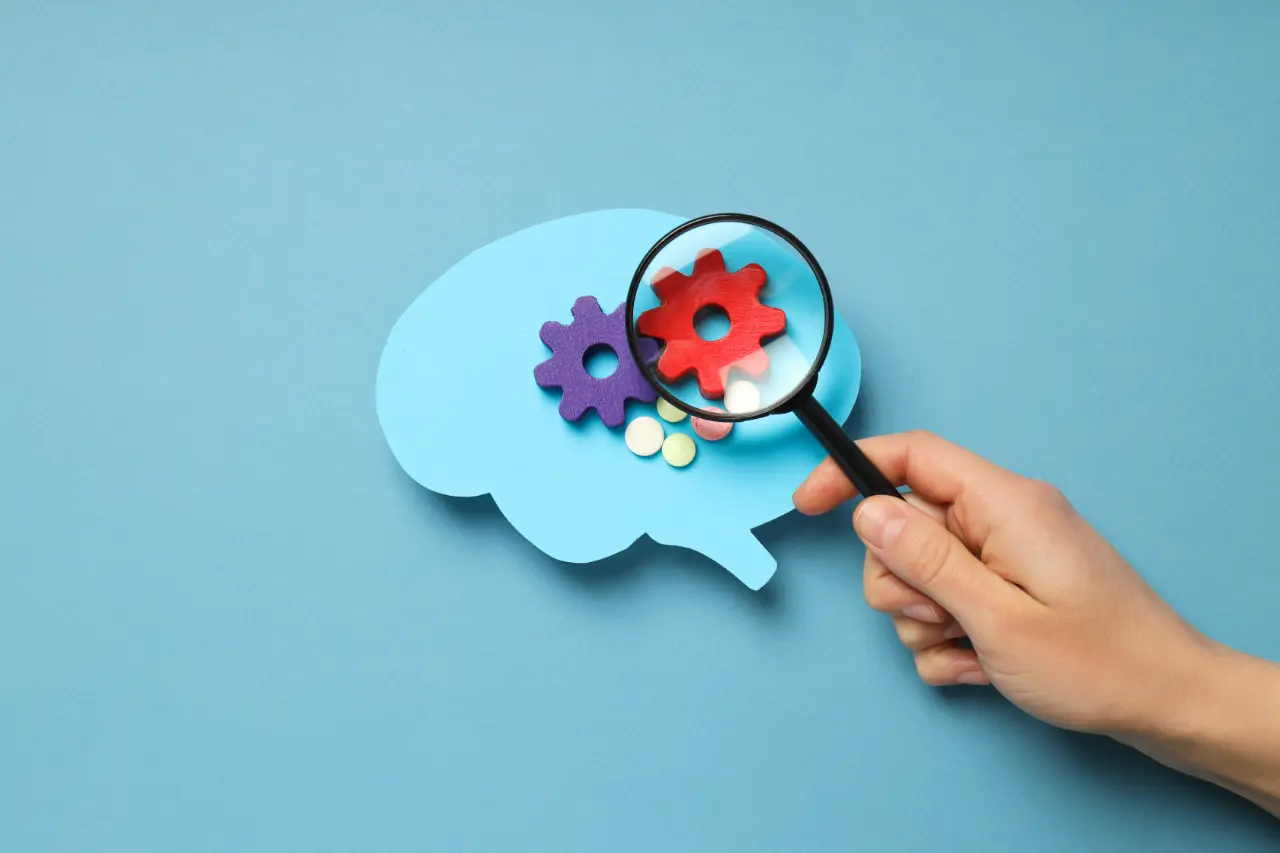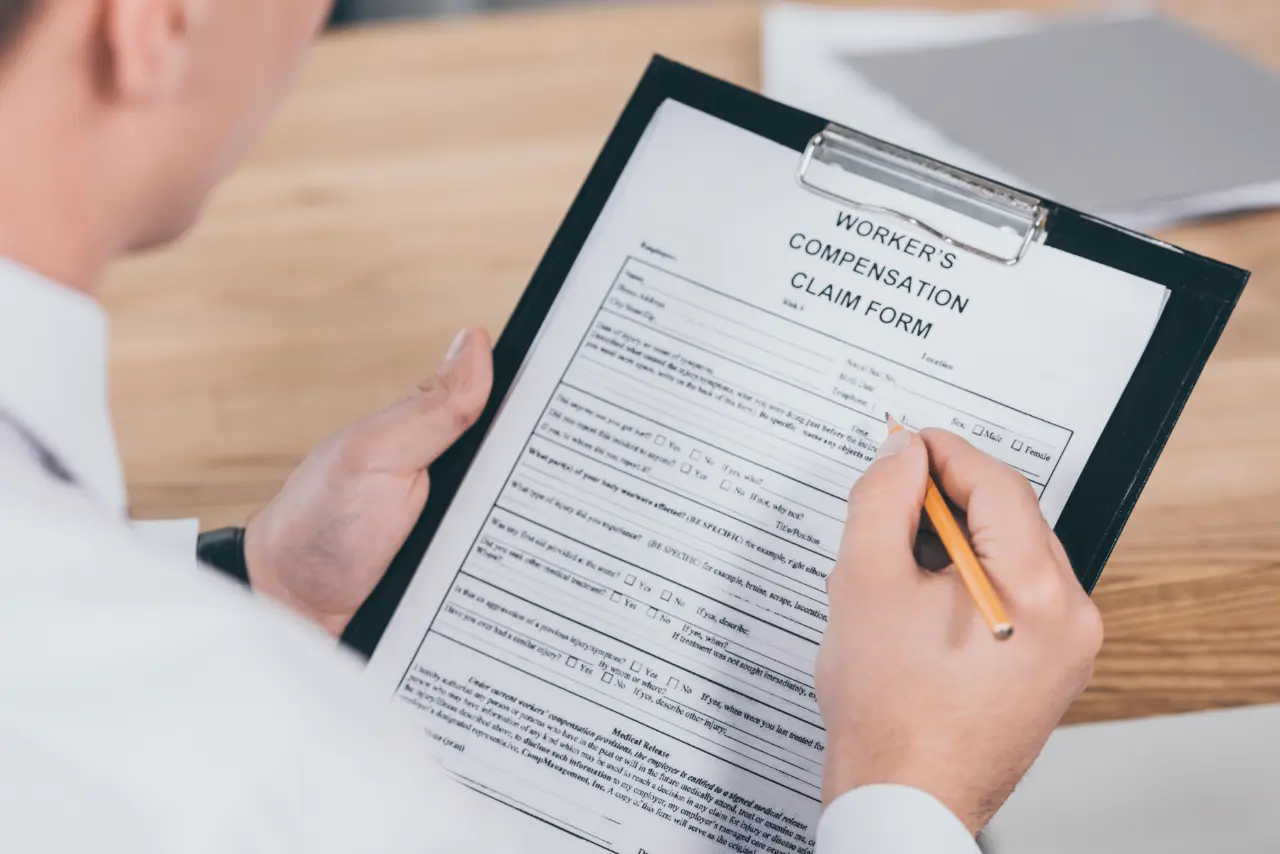Through individual therapy, you can gain the tools to communicate effectively, manage stress, and resolve conflicts.
We will explore their role in personal injury cases, how they are conducted, and their impact on legal outcomes.
Whether you're a plaintiff in a personal injury suit, a legal representative, or a mental health professional, this article is for you.
Whether you're a victim, a legal professional, or simply interested in the intersection of psychology and law, this article offers valuable insights.
Whether you're a healthcare professional, a patient, or simply someone interested in cognitive and mental health testing, this article will provide valuable insights.
Whether you're an immigrant seeking information or a professional working in this field, this guide will provide valuable insights.
Navigating the aftermath of a personal injury can be a daunting task. The road to recovery often involves more than just physical healing.
It's not just for the injured workers, but also for employers, insurers, and legal professionals.
In this comprehensive guide, we aim to provide support and guidance to those grappling with these mental health challenges.
Whether you're an immigration attorney, a mental health professional, or someone undergoing immigration processes, this article is for you.
By the end of this article, you'll have a comprehensive understanding of workers' compensation psychological evaluations.
This article will explore how psychological assessments support personal injury cases and the benefits they bring.
Depression
Depression is a common yet serious mood disorder. It affects millions of people worldwide, making it a leading cause of disability.
Understanding depression is crucial. It’s not just feeling sad or having a bad day. It’s a persistent feeling of sadness and loss of interest that can significantly affect one’s life.
This article aims to provide a comprehensive guide on depression. It covers its types, symptoms, and impact on daily life. It also discusses the importance of emotional well-being and how to conduct a depression test.
We’ll explore various treatment options and self-care strategies. The goal is to equip you with knowledge and resources to manage depression effectively.
Whether you’re seeking information for yourself or a loved one, this guide can help. Let’s delve into the world of depression and learn how to navigate it.
Understanding Depression
Depression is more than just a low mood. It’s a serious mental health condition that can affect every aspect of a person’s life. From how we feel and think, to how we handle daily activities.
Depression is characterized by persistent feelings of sadness, hopelessness, and a lack of interest or pleasure in activities. It’s not a sign of weakness or something you can just “snap out of”. It’s a real illness that requires professional treatment.
Depression can affect anyone, regardless of age, gender, or background. It’s a complex disorder with various contributing factors, including:
- Genetics
- Brain chemistry
- Personality
- Environmental factors
What is Depression?
Depression is a mood disorder that causes a persistent feeling of sadness and loss of interest. It’s also known as major depressive disorder or clinical depression. It affects how you feel, think, and behave and can lead to a variety of emotional and physical problems.
You may have trouble doing normal day-to-day activities. And sometimes you may feel as if life isn’t worth living. It’s not a weakness and you can’t simply “snap out” of depression. Most people with depression need treatment to get better.
Types of Depression
Depression comes in many forms and types. Understanding the different types can help in managing the condition effectively. Here are some common types of depression:
- Major Depressive Disorder (MDD): This is what most people think of when they hear “depression”. It’s characterized by persistent sadness and a lack of interest in activities.
- Persistent Depressive Disorder (PDD): Also known as dysthymia, PDD is a chronic form of depression that lasts for at least two years.
- Postpartum Depression: This type of depression affects women after giving birth. It’s more severe than the typical “baby blues”.
- Seasonal Affective Disorder (SAD): This type of depression is related to changes in seasons. It usually starts in the fall and continues into the winter months.
Each type of depression has its own set of symptoms and treatment options. It’s important to consult with a healthcare professional for an accurate diagnosis.
Recognizing the Symptoms
Depression manifests in different ways in different people. Some may feel persistently sad or hopeless, while others may lose interest in activities they once enjoyed. Recognizing the symptoms is the first step towards seeking help.
Symptoms can be physical, emotional, or both. They can vary in severity and duration. It’s important to remember that these symptoms must be present for at least two weeks for a diagnosis of depression.
Depression is not a “one-size-fits-all” condition. It affects people differently, depending on various factors such as age, gender, and personal circumstances.
Common Symptoms of Depression
Depression symptoms can vary from mild to severe. Here are some common symptoms:
- Persistent sad, anxious, or “empty” mood
- Feelings of hopelessness or pessimism
- Irritability
- Feelings of guilt, worthlessness, or helplessness
- Loss of interest or pleasure in hobbies and activities
- Decreased energy or fatigue
- Difficulty concentrating, remembering, or making decisions
- Insomnia or sleeping too much
- Appetite or weight changes
- Thoughts of death or suicide, or suicide attempts
- Aches or pains, headaches, cramps, or digestive problems without a clear physical cause and/or that do not ease even with treatment
It’s important to note that not everyone with depression experiences every symptom. The severity and frequency of symptoms vary depending on the individual and their particular illness.
Depression in Various Demographics
Depression does not discriminate. It can affect anyone at any age, from children to the elderly. However, symptoms may present differently across different age groups.
In children, symptoms may include sadness, irritability, clinginess, worry, aches and pains, refusing to go to school, or being underweight. In teens, symptoms may include sadness, irritability, feeling negative and worthless, anger, poor performance or poor attendance at school, feeling misunderstood and extremely sensitive, using recreational drugs or alcohol, eating or sleeping too much, self-harm, loss of interest in normal activities, and avoidance of social interaction.
In adults, depression often comes with feelings of sadness and a decreased interest in activities. Adults may also feel a lack of energy, difficulty concentrating, changes in appetite or weight, and more. It’s important to seek help if you or a loved one is experiencing these symptoms.
The Impact of Depression
Depression is more than just feeling sad or going through a rough patch. It’s a serious mental health condition that can have a significant impact on your life. It can affect all aspects of your life, including your physical health, relationships, and work.
Depression can make it difficult to function and enjoy life like you once did. It can sap your energy, make you feel empty or numb, and rob you of the satisfaction or pleasure you used to get from your daily activities.
Moreover, depression can also lead to a variety of physical problems, such as headaches, stomach problems, and chronic pain. It can also increase the risk of heart disease and diabetes.
Depression and Daily Life
Depression can make daily life challenging. Simple tasks can seem insurmountable. You may struggle with work, household chores, or even getting out of bed.
Depression can also affect your relationships. You may feel like you can’t connect with others or that they don’t understand what you’re going through. This can lead to isolation and loneliness, which can further exacerbate your symptoms.
Depression and Emotional Well-being
Depression can take a toll on your emotional well-being. You may feel like you’re stuck in a cycle of negative thinking, which can be hard to break.
Depression can also affect your self-esteem. You may feel worthless or guilty for no reason. It’s important to remember that these feelings are a symptom of your depression, not a reflection of who you are.
Taking a Depression Test
Depression tests can be a useful tool in the early detection and diagnosis of depression. They can help you understand your symptoms and whether they may be indicative of depression.
These tests typically involve a series of questions about your feelings, thoughts, and behaviors. They can include questions about your mood, sleep patterns, appetite, concentration, and energy levels.
- Self-assessment questionnaires
- Clinical evaluations
- Personal interviews
How to Conduct a Depression Test
Depression tests can be conducted in various ways. Self-assessment questionnaires can be found online and completed in your own time.
However, it’s important to remember that these tests are not a substitute for a professional diagnosis. They are a starting point that can help you decide whether to seek professional help.
When to Seek Professional Help
If your depression test results suggest that you may be depressed, it’s important to seek help from a healthcare professional. They can provide a thorough evaluation and discuss your treatment options.
Even if your test results are inconclusive, but you’re still feeling down or not like yourself, it’s worth reaching out to a healthcare provider. They can help you figure out what’s going on and how to feel better.
Treatment and Managing Depression
Depression is a treatable condition. With the right treatment plan, most people with depression can experience significant improvement in their symptoms.
Treatment for depression often involves a combination of psychotherapy, medication, and lifestyle changes. The specific treatment plan will depend on the individual’s symptoms, the severity of the depression, and their personal preferences.
- Psychotherapy
- Medication
- Lifestyle changes
Treatment Options for Depression
Psychotherapy, or talk therapy, is a common treatment for depression. Cognitive-behavioral therapy (CBT) is particularly effective in treating depression. It helps individuals change negative thought patterns and behaviors.
Medication, such as antidepressants, can also be used to treat depression. These medications work by balancing chemicals in your brain that affect mood and emotions.
Lifestyle changes, such as regular exercise, a healthy diet, and adequate sleep, can also play a crucial role in managing depression.
Self-Care and Support Systems
Self-care is an important part of managing depression. This can include activities that help you relax and take your mind off your symptoms.
Having a strong support system can also make a big difference. Friends and family can provide emotional support, help you stick to your treatment plan, and encourage you to take care of yourself.
Conclusion and Resources
Depression is a serious but treatable condition. Understanding its symptoms, causes, and treatment options is the first step towards recovery.
There are numerous resources available for those struggling with depression. These include mental health professionals, support groups, and online platforms. Don’t hesitate to seek help if you or a loved one is dealing with depression.











